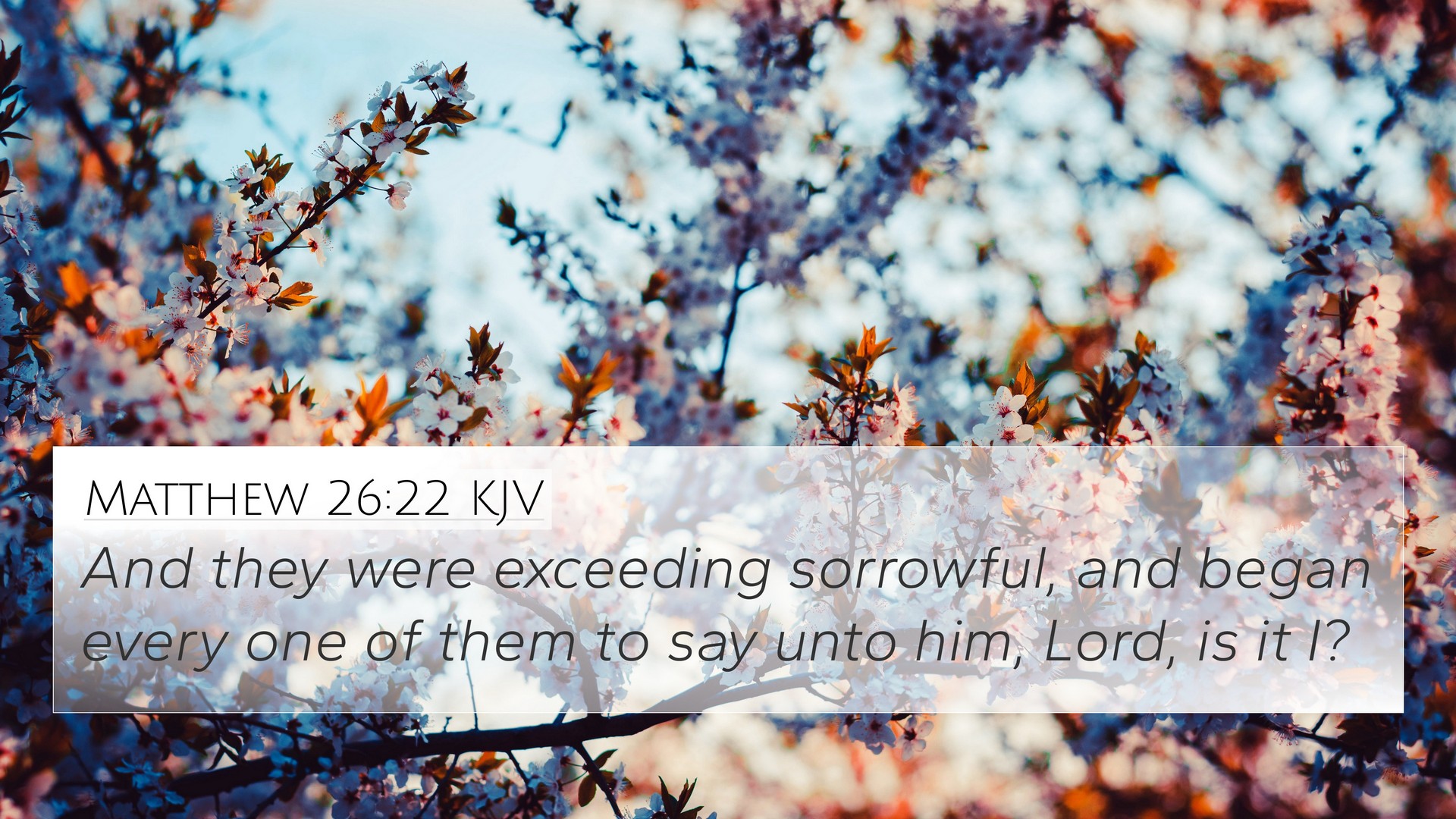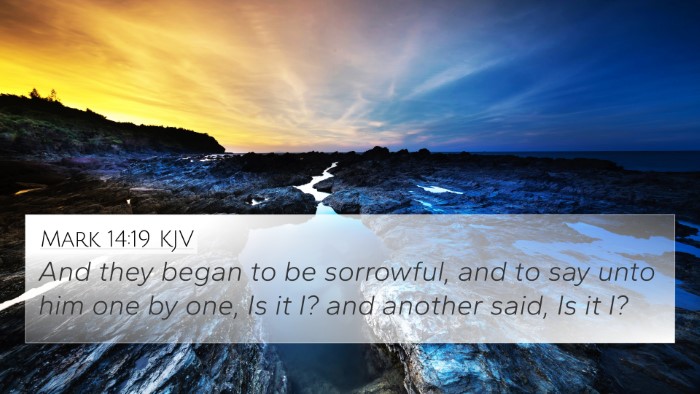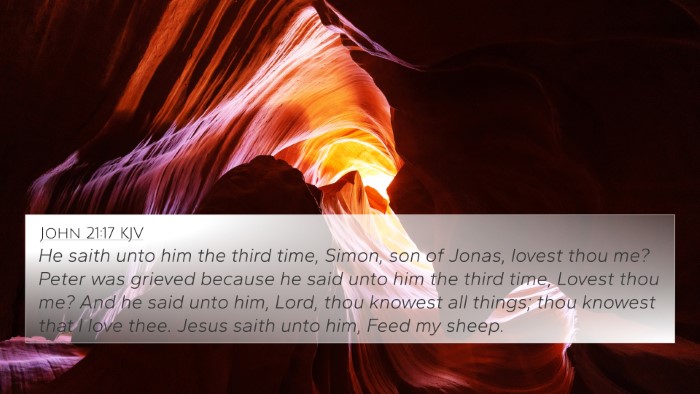Understanding Matthew 26:22
Verse Content: "And they were exceedingly sorrowful, and began every one of them to say unto him, Lord, is it I?"
Summary of the Verse's Meaning
This verse occurs during the Last Supper, a pivotal moment before Jesus’s crucifixion. The context reveals the deep emotional turmoil experienced by the disciples as they grapple with Jesus's revelation of betrayal among them.
Commentary Insights
-
Matthew Henry:
Henry emphasizes the individual sorrow that enveloped each disciple, suggesting that their question, "Is it I?" reflects both a sense of accountability and a genuine concern over their spiritual integrity. This illustrates their human frailty, even while walking closely with the Lord.
-
Albert Barnes:
Barnes notes the gravity of the situation, highlighting that the despair and confusion of the disciples point to their inability to recognize the depths of their own hearts. His commentary suggests that this moment is critical for all believers, reminding us to reflect on our vulnerabilities and the possibility of betrayal within ourselves.
-
Adam Clarke:
Clarke elaborates on the historical and cultural context, mentioning that the act of discipleship was deeply regarded and that such betrayal would strike at the very core of their mission. The disciples’ question reveals not only personal doubt but also the communal impact of sin within their fellowship.
Connections with Other Bible Verses
This verse can be connected to several other scriptures that explore themes of betrayal, accountability, and discipleship:
- Psalm 41:9: "Yea, mine own familiar friend, in whom I trusted, which did eat of my bread, hath lifted up his heel against me." Similarly highlights the pain of betrayal.
- John 13:21: "When Jesus had thus said, he was troubled in spirit, and testified, and said, Verily, verily, I say unto you, that one of you shall betray me." This verse reinforces the gravity of betrayal.
- 1 Corinthians 11:28: "But let a man examine himself, and so let him eat of that bread, and drink of that cup." A call to examine one’s own heart aligns with the disciples' introspection.
- Matthew 26:24: "The Son of man goeth as it is written of him: but woe unto that man by whom the Son of man is betrayed!" This statement underlines the profound nature of the betrayal.
- Luke 22:48: "But Jesus said unto him, Judas, betrayest thou the Son of man with a kiss?" This adds another layer to the act of betrayal with intimacy and treachery.
- Romans 7:18: "For I know that in me (that is, in my flesh,) dwelleth no good thing..." Highlighting the struggle against one's flesh aligns with the uncertainty faced by the disciples.
- James 1:14: "But every man is tempted, when he is drawn away of his own lust, and enticed." This plays into the inner conflicts and temptations the disciples faced.
Inter-Biblical Dialogue and Thematic Connections
Matthew 26:22 serves as a poignant reminder of the broader biblical narrative concerning human frailty, the nature of sin, and the call to vigilance in faith:
- Thematic Bible Verse Connections: The call to self-examine prior to partaking in communion appears in multiple scriptures, illustrating the necessity for personal accountability within communal worship.
- Betrayal as a recurring theme: Throughout both the Old and New Testaments, betrayal surfaces as a crucial element, from Joseph's brothers to Judas Iscariot, prompting reflection on loyalty and faithfulness.
- Comparative Bible Verse Analysis: Comparing the responses of different disciples in the Gospels reveals varying degrees of awareness and understanding of their own hearts.
Conclusion
Matthew 26:22 encapsulates the essence of sorrow and self-examination among the disciples. The interconnectedness of scripture, along with the complex human emotions involved in betrayal, provides a rich area for reflection on our own hearts and the nature of our commitment to Christ. As we explore these themes and connections, we deepen our understanding of the biblical text and its relevance to our lives today.
Further Study and Reflection
If you're interested in more about how to find cross-references in the Bible, consider utilizing a Bible concordance or a Bible cross-reference guide. These tools can be invaluable for cross-reference Bible study and increasing your understanding of how different parts of scripture relate to one another.






